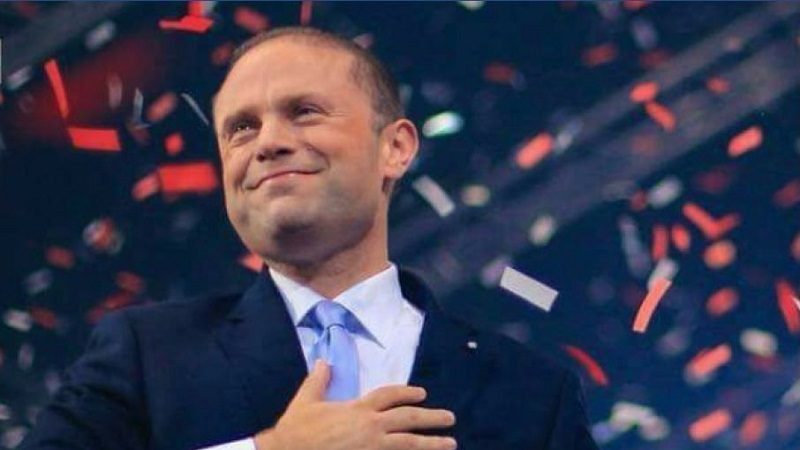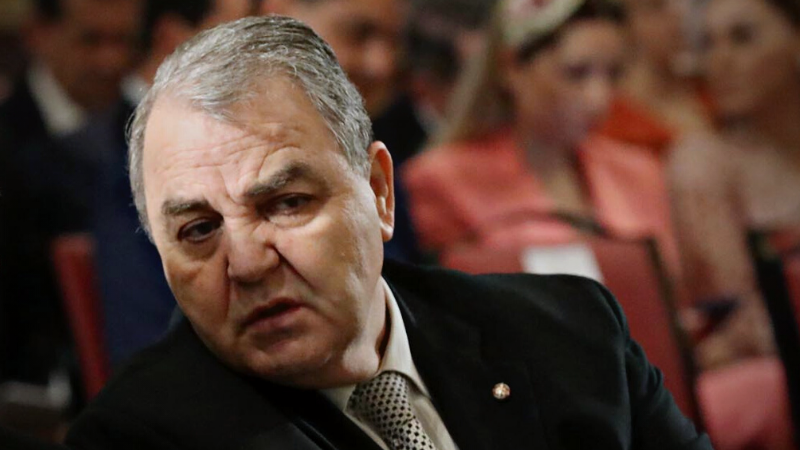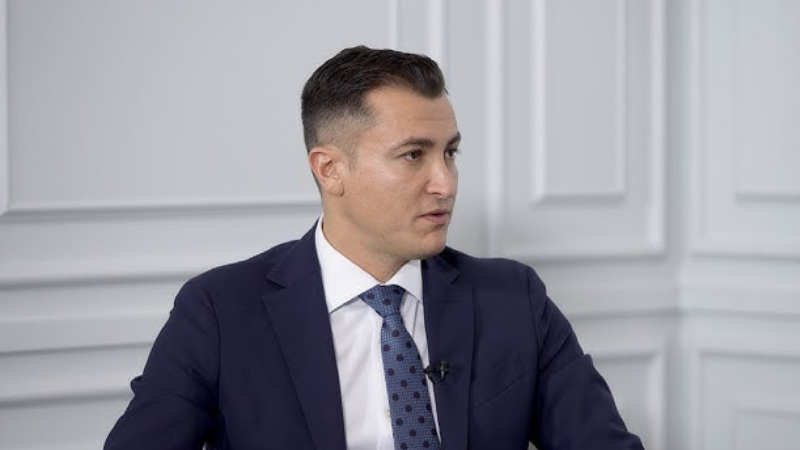In the US, the rule of law prevails. In Malta, it does not.
US President Donald Trump and some of his closest associates are suspected of serious crimes. They are being investigated, charged and prosecuted accordingly, despite his claims of “fake news” and the media being the “enemy of the State”, his attacks on the judiciary, and on the law enforcement and intelligence agencies of the State.
In stark contrast, in Malta, documented evidence of corruption, crime and money laundering at the highest levels of government are carefully ignored by the relevant institutions and law enforcement agencies. These are the typical signs and symptoms that the rule of law is in decline.
Top legal experts such as the Dean of the Faculty of Law Kevin Aquilina, former Chief Justice Silvio Camilleri and Ken Mifsud Bonnici an international constitutional and institutional lawyer specialised in public governance and the rule of law, have all warned us in no uncertain terms about the systemic erosion of rule of law in Malta.
Joseph Muscat’s mutilation of rule of law began with the deliberate exploitation of weaknesses and shortcomings in our Constitution; the lack of proper separation of powers, and the lack of checks and balances to ensure that the upkeep of the rule of law is not merely dependent on the fickle whim of politicians.
In a parliamentary democracy, the State is made up of three organs: the Executive (the government), the Legislature (Parliament) and the Judiciary (the Courts). The free media – which lies outside of the organs of the State and provides scrutiny and oversight over the three pillars of the state – is considered as the fourth pillar.
The doctrine of separation of powers asserts that vesting concentration of power within one organ of the State must be avoided. As English historian and politician Lord Acton said: “Power tends to corrupt and absolute power corrupts absolutely”.
Therefore, the three organs of the State (as well as the media), should be kept separate, and they should operate independently of each other, providing the necessary checks and balances on one another. Without separation of powers, rule of law and democracy cannot subsist.
Nearly 250 years ago, James Madison summed all this up in The Federalist Papers (no. 47, 323—31):
“The accumulation of all powers, legislative, executive, and judiciary, in the same hands, whether of one, a few, or many, and whether hereditary, self-appointed, or elective, may justly be pronounced the very definition of tyranny.”
The Labour Party has a strong parliamentary majority and undisputed control of Parliament. Constitutionally, the (spectacularly large) Cabinet – prime minister, ministers and parliamentary secretaries must be members of Parliament, meaning they have one foot in the executive arm and another in the legislative arm. In addition, most Labour MPs and their extensions (activists, supporters, family, friends, and constituents) hold key positions within the government as political appointees and persons of trust.
This deliberate fusion of the legislative and executive arms and the systemic obfuscation of their parameters has led to the total control of the government by the Labour Party, eliminating checks and balances, and transforming the government into an authoritarian regime in which the State becomes the Party.
The police force lies within the executive arm (government). The police commissioner is appointed by the prime minister; the prime minister is the police commissioner’s boss. It would need a commissioner of high integrity and mettle to investigate his boss, members of his boss’s family, or his boss’s protégés. This may explain why the Labour Party has an unprecedented track record in police commissioners appointed under its watch.
The Attorney General (AG) is also appointed by the prime minister. He has the task of prosecuting his own boss while at the same time having to defend him. It doesn’t take a genius to decide which path is the easier one.
The other pillar in a democracy, the judiciary, has 45 judges and magistrates. The absolute majority of those appointed after the Labour Party shot to power in 2013 have an association with the Party in government, including an ex-Deputy Leader of the Party.
By the end of this legislature, a further 10 lawyers will need to be appointed to the bench to replace judges who reach retirement age. If those appointed to the Bench in the next four years are chosen along the same lines, then what we are witnessing is a take-over of the judiciary.
Faith in the judiciary is already extremely low, according to a Eurobarometer survey.
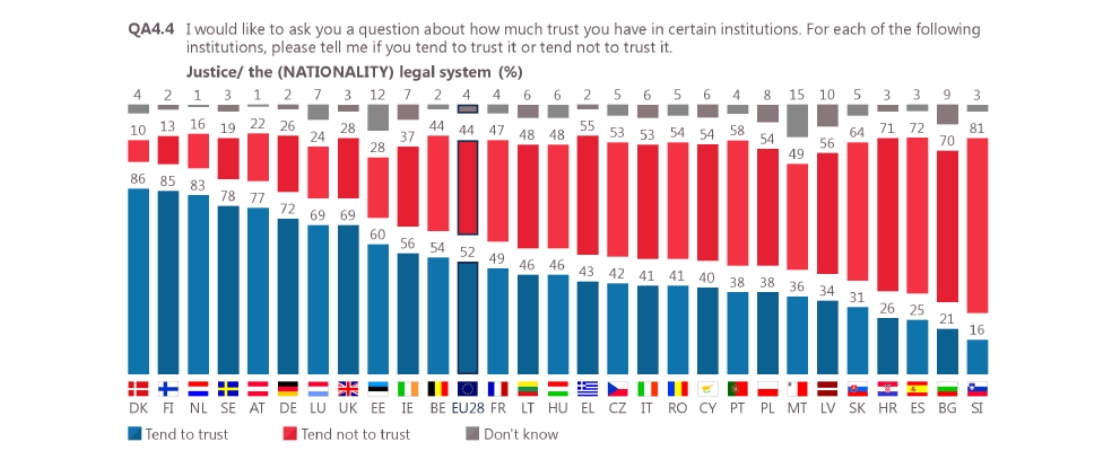
The EU Justice Scoreboard 2018 also shows that the Maltese justice system has several serious shortcomings. It is at the bottom of the heap on many parameters when compared to other EU countries, including excessively long periods of time for a case to be decided. This, too, is extremely damaging to the rule of law – justice delayed is justice denied.
The media is often referred to as the ‘Fourth Estate’ or the ‘fourth pillar of democracy’. It is supposed to keep an honest, unbiased watch on the other three Estates in a democracy. The Fourth Estate is synonymous with freedom of thought, speech and expression and the right to information; these are the rights of every citizen without exception, and they are vital for a democracy to function and to thrive.
Which is why the Justice Minister’s documented collusion with Henley & Partners in the threat of a SLAPP suit against assassinated journalist Daphne Caruana Galizia and other media outlets is nothing short of shameful.
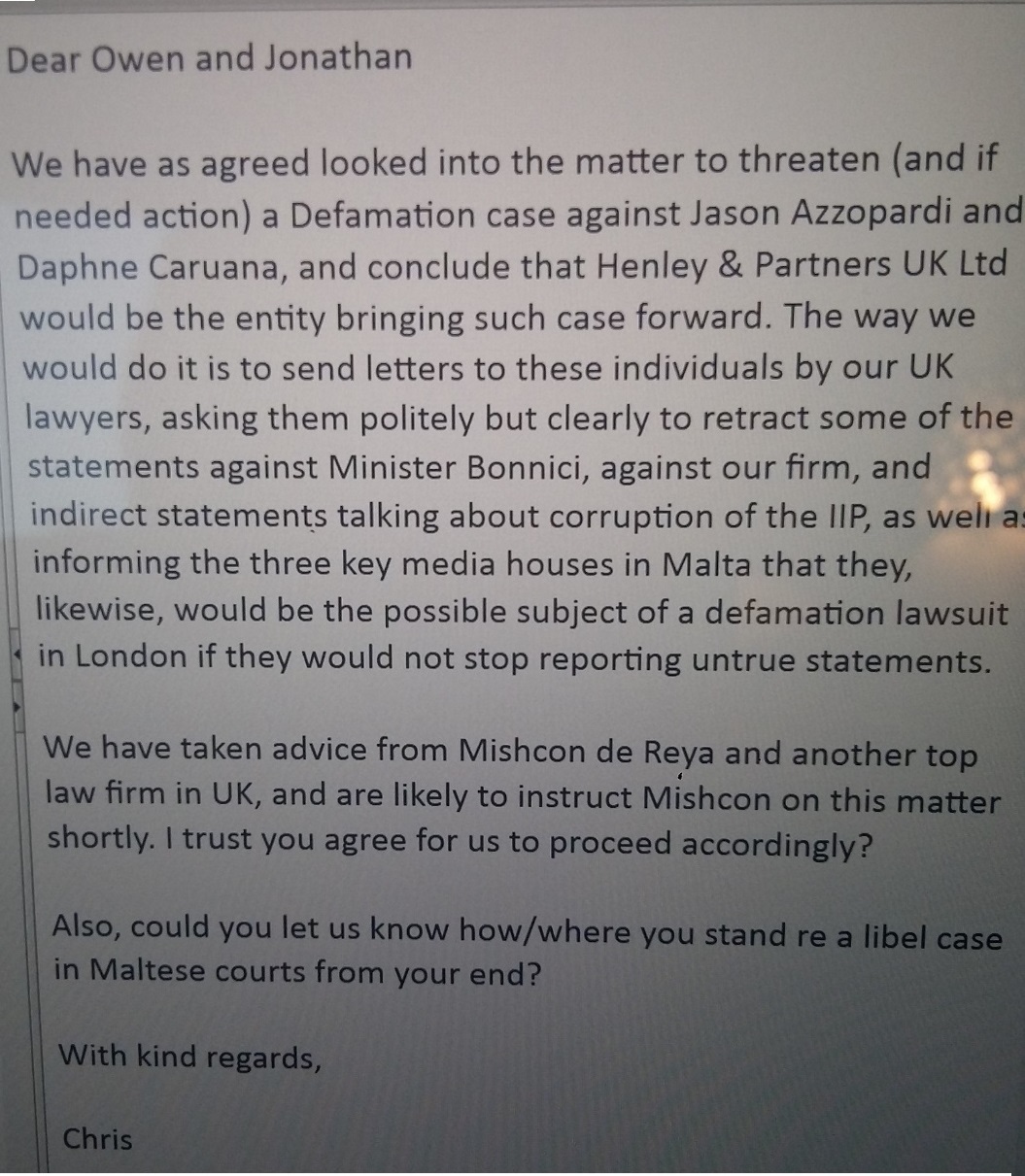
Email correspondence between Henley and Partners and the Maltese government published in Daphne Caruana Galizia’s blog, Running Commentary.
Rule of law in Malta has been replaced stealthily with ‘rule by law”. The two are far from the same thing. In totalitarian states such as China, there is law and order, there are laws, they are kept and enforced, and there are courts. But this is not rule of law but rule by law, which was present even in Hitler’s Nazi Germany.
In rule of law, the law is something the government serves. In rule by law, the government uses law as the most convenient way to govern.
Rule of law belongs to democracies.
Rule by Law belongs to dictators and autocratic governments, even if these have been elected by the people.
An election every five years does not qualify a country as a democracy, and as a country where rule of law subsists.

